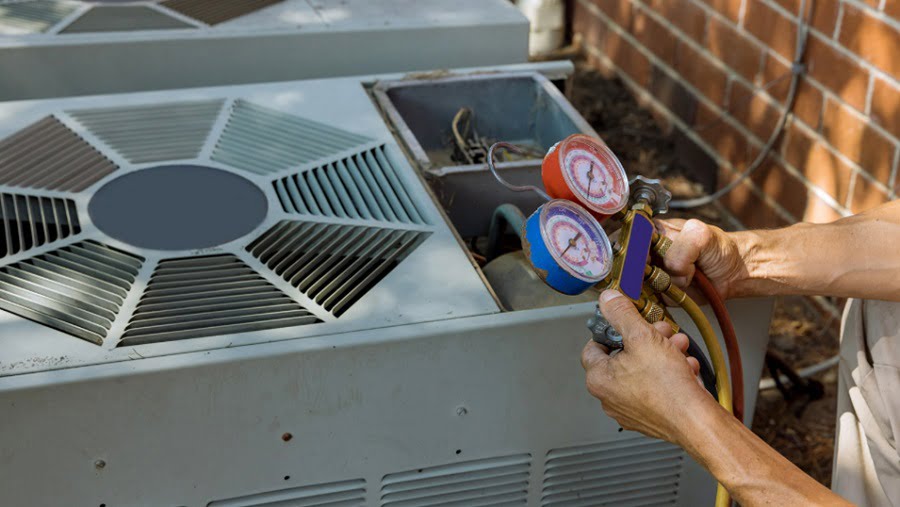
When faced with a malfunctioning air conditioning unit, homeowners often grapple with the decision of whether to opt for air conditioning repair or consider a complete replacement. This choice can be daunting, but understanding the factors that influence this decision can provide clarity. This article will explore the differences between air conditioning repair and replacement and the factors to consider when making this decision.
Air Conditioning Repair
Choosing to repair an air conditioning unit can be a cost-effective solution, especially if the issue is minor and the system is relatively new. Common problems that may require repair include refrigerant leaks, electrical failures, or sensor problems. While considering air conditioning repair in Manassas, VA, it’s important to consult with a professional to diagnose the problem accurately.
Benefits of Repair
Repairing an air conditioning system often involves lower immediate costs compared to a full replacement. Additionally, if the unit has been well-maintained and is not yet at the end of its life expectancy, repairs can efficiently restore comfort. Quick repairs can also be more convenient, causing minimal disruption to the household.
When to Opt for Repair
You may consider a professional for repairs if the air conditioning unit is less than ten years old and the issue appears to be a one-time occurrence. Furthermore, if the cost of the repair is significantly less than that of a new unit and the existing system is energy-efficient, repairing it might be the most practical solution.
Air Conditioning Replacement
On the other hand, opting for a complete replacement can be a more beneficial long-term investment, particularly if the current system is old or has required multiple repairs. New air conditioning units often come with improved energy efficiency, which can result in significant utility savings over time.
Benefits of Replacement
New air conditioning systems feature advanced technologies that enhance performance and reduce energy consumption. They also come with updated warranties, which can provide peace of mind and protection against future repair costs. Moreover, modern units often contribute to a lower environmental impact.
When to Consider Replacement
Replacement should be considered if the current air conditioning unit is over ten to fifteen years old, has a history of frequent breakdowns, or if the cost of repairs is approaching or exceeding half the price of a new system. Additionally, if there are significant advancements in energy efficiency that the old system lacks, upgrading to a new unit can be advantageous.
Conclusion
Determining whether to repair or replace your air conditioning unit involves assessing various factors, such as the age of the system, the cost of repairs versus replacement, and the potential for energy savings. By understanding why your air conditioner might be failing to start and considering whether repair or replacement is the most practical decision, homeowners can ensure their home stays comfortable and energy-efficient during the hot summer months. Consult with a professional HVAC technician to make an informed decision that best fits your needs and budget.


 Common Furnace Problems in Cold Climates and How to Prevent Them
Common Furnace Problems in Cold Climates and How to Prevent Them  Why You Should Always Hire a Licensed and Insured Electrician
Why You Should Always Hire a Licensed and Insured Electrician  How to Improve Indoor Air Quality in Homes: Practical Tips and Strategies
How to Improve Indoor Air Quality in Homes: Practical Tips and Strategies  An In-Depth Exploration of Comfort Tech San Antonio Services
An In-Depth Exploration of Comfort Tech San Antonio Services  How Does Winter Weather Affect Your HVAC System?
How Does Winter Weather Affect Your HVAC System?  The Benefits of a Fire Pit for Year-Round Outdoor Living
The Benefits of a Fire Pit for Year-Round Outdoor Living  The Role of Minimalist Lighting in Modern Interior Design: Trends and Functional Analysis
The Role of Minimalist Lighting in Modern Interior Design: Trends and Functional Analysis  Top Security Features to Look for in a Garage Door
Top Security Features to Look for in a Garage Door  Comprehensive Guide to Mold Removal in Hunterdon County: Safeguarding Your Home and Health
Comprehensive Guide to Mold Removal in Hunterdon County: Safeguarding Your Home and Health